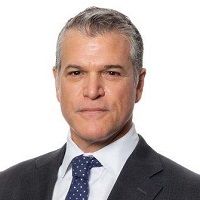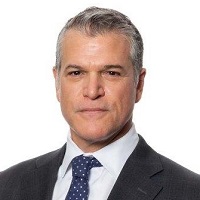As Florida Condo Prices Fall, What’s a Condo Seller to Do?
Mandates that associations have adequate reserve funds for maintenance and repairs mean older buildings could be retired to make way for new development.


Condo prices in Florida have been steadily falling, fueled by an increasing rate of motivated sellers.
Certainly, high interest rates are a part of this trend, but a closer look suggests that changes to the Florida Condominium Act — the state’s laws governing condominium associations — may be a major factor behind the market trend and also suggests that a development boom could be coming.
Fundamentally, real estate demand in Florida has remained strong. The Sunshine State saw a significant influx of migration during the pandemic, according to the Census Bureau, and those trends have largely remained steady.

Sign up for Kiplinger’s Free E-Newsletters
Profit and prosper with the best of expert advice on investing, taxes, retirement, personal finance and more - straight to your e-mail.
Profit and prosper with the best of expert advice - straight to your e-mail.
What’s changed, though, is a major amendment to the Florida Condominium Act covering condo associations, which was passed following the collapse of the Champlain Towers condominium complex in 2021. That tragedy was likely due to significant deferred maintenance issues and a lack of adequate reserves to address the structural maintenance issues.
Under the new amendments, condo associations have new standards that mandate that associations maintain adequate reserve funds for maintenance and repairs.
By the end of this year, condo associations in Florida must obtain a Structural Integrity Reserve Study that outlines what reserves must be collected to finance the repairs and maintenance of critical components of the building over the next 10 years based upon the current condition of the building. If any components of the building, such as the roof or balconies, are past their estimated useful life, it is likely those components will be required to be repaired or replaced right away.
What does this mean?
All this means that condo owners in Florida — especially those in older buildings in need of more attention — are suddenly facing (or are soon to face) dramatic hikes to their monthly condo association fees and, potentially, significant special assessments.
The scramble to bring buildings into compliance means that condo association fees in many cases may increase to an amount that is more than owners’ mortgage payments — potentially leading middle- and fixed-income Floridians into financial chaos.
Owners who anticipate that they will not be able to afford the mandated increases are understandably moving aggressively to sell their units, bringing a flood of motivated sellers into the market.
But buyers don’t want a unit in an aging building requiring expensive mandated upgrades with hefty COA fees and special assessments. For a comparable price, buyers can likely purchase a unit in a much newer building, avoid surprise increases in COA fees and special assessments and get vastly better value for their money.
It’s hurting the middle and lower end of the condo market. There is a serious concern that if the values of these condos drop too fast and a high percentage of unit owners cannot pay their COA fees, mortgage lenders will no longer be willing to lend against the units in those communities. That would essentially make those units unsellable since no buyer could get a regular mortgage loan to finance the purchase. If this happens, the condo associations may fail and be forced to declare bankruptcy.
Owners of luxury condos can handle increased costs
In contrast, the luxury condo market in Florida is still going strong. For the most part, luxury buildings and luxury owners aren’t facing the same sort of squeeze that middle-income buildings are seeing since owners in these projects are more able to afford any increased COA fees and special assessments. Also, the majority of luxury condo projects are newer, but even the older buildings have generally been better maintained than middle- and lower-end condos.
For developers of luxury properties, the situation faced by older condo buildings may create more development opportunities.
Even before the recent changes in the condo act, many of the older condo buildings in South Florida were facing extremely high repair and replacement costs as buildings deteriorated and the cost of replacement components increased. In many cases, the unit owners determined that it no longer made sense to keep their units since the cost of maintaining the condo building would continue to increase, but the value of their units would continue to gradually decrease.
Because development sites are in short supply, in many cases, the land value per unit exceeds the market value per unit for older condo buildings. For many condo communities, the real asset is the value of their share of the land under their building.
Increasingly, condo owners are uniting to bring their units to market and sell in bulk to a developer, who can in turn terminate the condominium, demolish the existing structure and develop a new building. In 2023, South Florida saw the highest number of bulk condo buyouts since 2019.
What should condo owners do?
Condo owners need to move quickly if they want to maximize the value they receive for their units. If they wait too long, they’ll lose a lot of the leverage they need in negotiations. In order to get the best offer for their building, owners should be unified as a COA to bring their properties to market.
Typically, a strong majority of owners is necessary to get a deal done. The exact number varies based on the language in the condo documents and whether the current version of the condo act applies. In some cases, percentages as low as 75% are sufficient. However, under the current version of the condo act, 95% of the voting interest is required to terminate a condominium. An experienced condo attorney should assist the condo association to determine what percentage would be required for a particular condo association.
COA leadership should be actively considering what’s in the best interest of their owners and educating them on how these deals can be structured. If you’re a condo owner in an older building in Florida and your COA hasn’t brought up the idea of a sale, ask your directors if they have considered the idea.
These bulk condo buyout deals can be difficult and risky transactions for developers, as they tend to result in litigation from minority unit owners who do not vote in favor of a bulk sale. A recent decision by a Florida appeals court may further complicate the ability of older condominiums to terminate.
Florida has also instituted a number of incentive programs to encourage developers to continue to invest in the state, including programs designed to boost affordable housing. The Live Local Act, for instance, has spurred a slate of development that’s targeted toward homes for middle- and lower-income families that could relieve some of the pressure generated by the condo law changes.
For now, those laws are turning loose powerful market forces that will cause real pain for certain condo owners but create real opportunity for condo developers. It will make for a fascinating period in the state’s fabled real estate history.
Related Content
- Retirees, A Healthy Condo Has a Flush Reserve Fund
- Is Now a Good Time to Buy a House?
- Six Reasons to Use a Real Estate Agent When You Sell
- Four Reasons to Buy When You Downsize for Retirement
- Why Luxury Home Sales Are Surging Right Now
Profit and prosper with the best of Kiplinger's advice on investing, taxes, retirement, personal finance and much more. Delivered daily. Enter your email in the box and click Sign Me Up.

Drawing on his prior experience as a banker and general counsel for a private equity firm, Joe Hernandez counsels a variety of clients in negotiating and structuring complex commercial real estate transactions. He represents real estate developers, financial institutions, private equity firms, family offices and public entities in all phases of such transactions, with deals across the United States, Latin America and the Caribbean.
-
 What About Those ‘Guaranteed’ Life Insurance Ads?
What About Those ‘Guaranteed’ Life Insurance Ads?Guaranteed life insurance policies can sound tempting if you've been declined for insurance elsewhere. Here are four downsides and one alternative.
-
 13 Answers to Pressing Social Security Questions
13 Answers to Pressing Social Security QuestionsFrom smart claiming strategies for couples to tips on maximizing your monthly check, we have advice that can help you.
-
 Eight Tips From a Financial Caddie: How to Keep Your Retirement on the Fairway
Eight Tips From a Financial Caddie: How to Keep Your Retirement on the FairwayThink of your financial adviser as a golf caddie — giving you the advice you need to nail the retirement course, avoiding financial bunkers and bogeys.
-
 Just Sold Your Business? Avoid These Five Hasty Moves
Just Sold Your Business? Avoid These Five Hasty MovesIf you've exited your business, financial advice is likely to be flooding in from all quarters. But wait until the dust settles before making any big moves.
-
 You Were Planning to Retire This Year: Should You Go Ahead?
You Were Planning to Retire This Year: Should You Go Ahead?If the economic climate is making you doubt whether you should retire this year, these three questions will help you make up your mind.
-
 Are You Owed Money Thanks to the SSFA? You Might Need to Do Something to Get It
Are You Owed Money Thanks to the SSFA? You Might Need to Do Something to Get ItThe Social Security Fairness Act removed restrictions on benefits for people with government pensions. If you're one of them, don't leave money on the table. Here's how you can be proactive in claiming what you're due.
-
 From Wills to Wishes: An Expert Guide to Your Estate Planning Playbook
From Wills to Wishes: An Expert Guide to Your Estate Planning PlaybookConsider supplementing your traditional legal documents with this essential road map to guide your loved ones through the emotional and logistical details that will follow your loss.
-
 Your Home + Your IRA = Your Long-Term Care Solution
Your Home + Your IRA = Your Long-Term Care SolutionIf you're worried that long-term care costs will drain your retirement savings, consider a personalized retirement plan that could solve your problem.
-
 I'm a Financial Planner: Retirees Should Never Do These Four Things in a Recession
I'm a Financial Planner: Retirees Should Never Do These Four Things in a RecessionRecessions are scary business, especially for retirees. They can scare even the most prepared folks into making bad moves — like these.
-
 A Retirement Planner's Advice for Taking the Guesswork Out of Income Planning
A Retirement Planner's Advice for Taking the Guesswork Out of Income PlanningOnce you've saved for retirement, you'll need your nest egg to support you for as many as 30 years. For that, you need a clear income strategy, not guesswork.